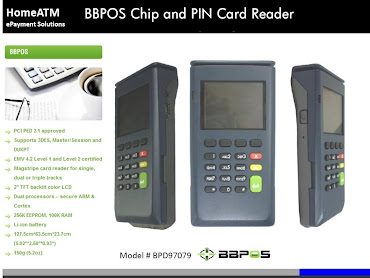Here's some very good information from BankRate.com on how gift cards from retailers who file for bankruptcy protection are affected...
"Gift cards can become worthless when their issuers fail. Yet many people don't realize that gift card funds aren't guaranteed. A recent survey from Archstone Consulting found that 70 percent of respondents did not recognize that bankrupt retailers not honoring gift cards is a problem.
When made aware of the issue, "they still weren't that concerned," says Mike Unger, principal at Archstone Consulting.
The finding, he says, upsets him. "Frankly, given what's going on right now in this environment and with retailers struggling, I personally would not buy a gift card from a company that I thought might see bankruptcy days ahead of it because you don't need a bankruptcy judge telling you they're not going to honor your gift card," he says.
Here's what can happen if your gift card issuer goes under.
Retailer-issued cards
When a retailer files for bankruptcy -- either Chapter 11 for reorganization or Chapter 7 for liquidation -- its gift cards may or may not prove worthless.
First of all, it's not a given that the card will become unredeemable (sic) when the merchant files for Chapter 11. "It's up to the retailer. They ask permission to the court whether or not they may continue to accept the gift cards," says Michelle Jun, staff attorney for Consumers Union, the publisher of Consumer Reports.For example, when Sharper Image filed for Chapter 11 bankruptcy protection in February 2008, it first told the court it would no longer honor its own gift cards. Later on, the company asked if it could accept them in cases where cardholders spent at least twice the value of the card in one transaction. "The problem is that consumers are unaware of the status of whether or not their gift cards will continue to be accepted," says Jun.
If the retailer cannot accept gift cards or files for Chapter 7, your only hope of getting any money out of the card is to file as an unsecured creditor in the bankruptcy proceeding. Contact the retailers customer service department for instructions on how to file.
Gift cardholders don't get paid first when assets are distributed in bankruptcy. Secured creditors collect first, administrative costs come out and then "whatever's left is left for this pro-rata distribution to the holders of unsecured claims," says Sarah Jane Hughes, a university scholar and fellow in commercial law at the Indiana University School of Law.
A "pro-rata" distribution is a percentage arrived at by dividing the assets available for distribution to unsecured creditors by the amount owed to them. The unsecured creditor would get that fraction times the amount of his or her claim. "So that if you had a $1,000 gift card and the pro-rata percentage was 5 percent, at the end when they distributed assets, you'd get $50."
Bank-issued cards
The rules are different for bank-issued prepaid debit cards, or "open-loop" cards with an American Express, Discover, MasterCard or Visa logo. When the issuing bank fails, whether or not the gift card is covered by deposit insurance makes all the difference.
Bank-issued gift cards can have third-party distributors -- retail stores that have gift card kiosks, such as drugstores -- which makes deposit insurance coverage less than straightforward. "Depending on how the account is structured, we might recognize the retail store as the insured depositor or we might recognize the various cardholders as the depositors," says Christopher Hencke, staff attorney at the Federal Deposit Insurance Corp.
The store would only receive coverage for up to $250,000, but if the cardholders were insured, they would each be covered for up to $250,000, in combination with any other accounts they had at that financial institution.
Check the gift card agreement to see if it states whether the card has deposit insurance. Hencke says if it offers no explanation, "and you haven't been asked to send a form to a bank explaining who you are and your identity, you can pretty much assume you're not going to be insured by the FDIC -- you personally." The FDIC must have records of who the cardholders are and how much they are owed."









0 comments